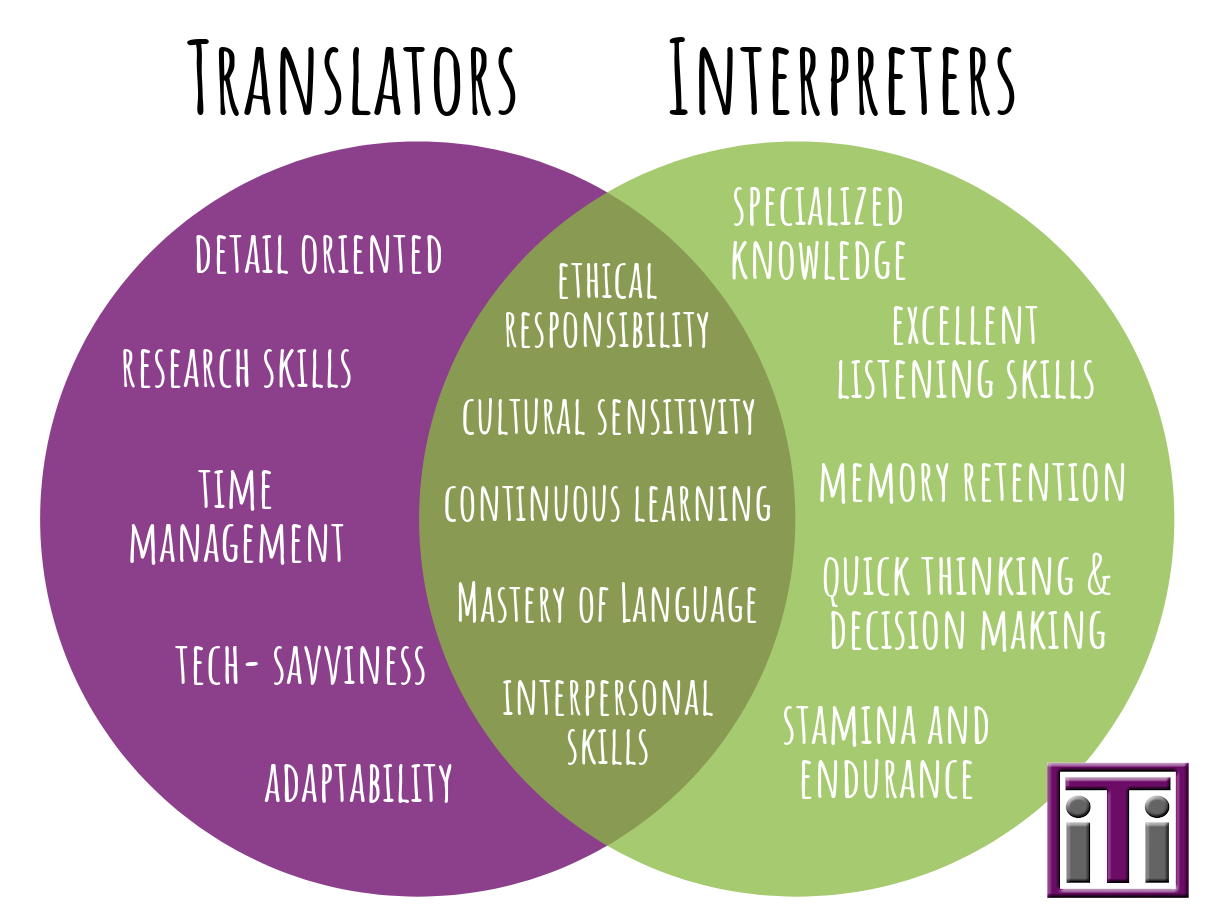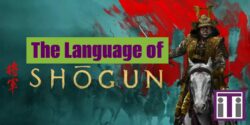
In the realm of language services, the roles of translators and interpreters often intermingle in public perception. While both play pivotal roles in bridging linguistic barriers, the skills and competencies they bring to the table include both similarities and contrasts. As a company that provides both translation and interpreting services, these are characteristics iTi looks for when contracting professional linguists.
Skills and Characteristics of a Professional Translator
Mastery of Language
At the heart of document translation lies a deep understanding of both the source and target languages. A professional translator is fluent, but more than that, they are culturally astute, grasping not just the words but their nuances, idioms, and contexts.
Cultural Sensitivity
Beyond vocabulary and grammar, language is embedded with cultural undertones. A proficient translator recognizes these subtleties and can expertly navigate them to ensure the translated content resonates with the target audience.
Detail Oriented
Precision is paramount. A slight oversight or misinterpretation can drastically alter the meaning of a text. A skilled translator pays meticulous attention to detail, ensuring each word and phrase is translated accurately.
 Research Skills
Research Skills
Some projects require expertise in specialized fields, from law to medicine to technology. A professional document translator is adept at conducting research to understand and accurately translate industry-specific terminologies.
Time Management
Translation projects often come with tight deadlines. Our translators excel in managing their time efficiently, ensuring timely delivery without compromising on quality.
Tech-Savviness
With the evolution of digital tools and translation software, being technologically adept is no longer optional. A modern translator knows how to leverage these tools while also recognizing their limitations.
Ethical Responsibility
Given that many documents may contain sensitive or proprietary information, a professional translator understands the importance of confidentiality and adheres to strict privacy guidelines.
Continuous Learning
Languages evolve, and so does the world of translation. A dedicated translator is committed to ongoing learning, staying updated with language changes, industry trends, and technological advancements.
Interpersonal Skills
While translation can be a solitary task, collaboration is often essential. A translator must be able to communicate effectively with clients, editors, and other stakeholders, ensuring clarity and mutual understanding.
Adaptability
Every project is unique, and so are its challenges. Whether it’s a shift in tone, a last-minute revision, or a niche subject area, a seasoned translator adapts swiftly and effectively.
Skills and Characteristics of a Professional Interpreter
Mastery of Language:
At the core, a professional interpreter possesses a profound mastery of both the source and target languages. This is not just about fluent speaking, but a deep comprehension that extends beyond common phrases to include technical and colloquial expressions.
Cultural Sensitivity:
Language is not just words; it’s deeply rooted in culture. A skilled interpreter grasps these cultural nuances, ensuring that the message isn’t just translated, but culturally adapted for the target audience, preventing potential misunderstandings.

Excellent Listening Skills:
Interpreting isn’t just about speaking—it starts with active listening. A professional interpreter needs to attentively listen, understand, and then convey the message in the target language, usually in real-time.
Memory Retention:
In many situations, especially in consecutive interpreting, professionals must remember entire passages of spoken word and then reproduce them accurately in a different language, making short-term memory a critical skill.
Ethical Responsibility:
Interpreters often find themselves in sensitive situations, be it in medical, legal, or diplomatic settings. It’s paramount that they maintain confidentiality, neutrality, and display high levels of professional integrity.
Quick Thinking and Decision Making:
With no room for hesitation, interpreters must think on their feet. Sometimes, they may encounter unfamiliar terms or complex concepts on the fly and will need to convey them accurately and promptly.
Specialized Knowledge:
Depending on the context—whether it’s a medical procedure, a court case, or a business meeting—an interpreter may need to be familiar with specialized terminologies and industry-specific nuances.
Interpersonal Skills:
An interpreter often acts as a bridge between two parties. Their ability to interact effectively, understanding the needs of both sides, is crucial in facilitating smooth communication.
Stamina and Endurance:
Especially in simultaneous interpreting scenarios, professionals may need to stay focused and alert for extended periods. Physical and mental endurance becomes essential in such situations.
Continuous Learning:
As languages evolve and industries progress, an interpreter must stay updated. This involves continuous training and being in touch with current events, slang, and new terminologies.
Why iTi?
Our translators and interpreters embody these characteristics, ensuring each project is handled with expertise, care, and professionalism.
When you choose iTi as your translation services and interpreting services provider, you’re not just getting a linguist—you’re gaining a partner dedicated to conveying your message as authentically and effectively as possible.
| Talk to an Expert |






Comments are closed here.